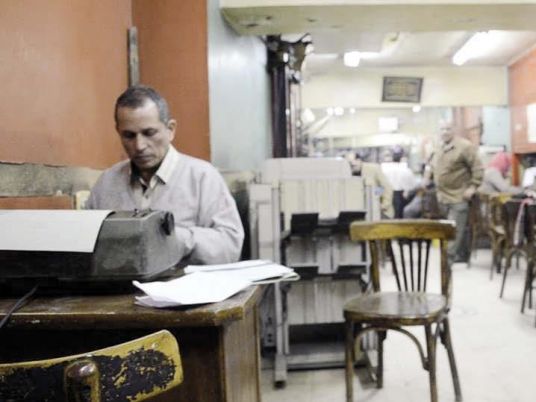
Defeated by technology, the typewriter could not hold out with its loud sound, cumbersome keys and its inability to save and delete like the computer. Yet, the state institutions have brought typewriters once again into the life of Egyptians.
"Typewriters available" is a phrase you will rarely see in printing stores, and it will certainly not catch your attention, unless a government office surprises you by requesting that your application be written on a typewriter.
Office holders in the area between Bein al-Sarayat and the Giza government office are prepared for this, says Hamid Hussein, owner of a computer and typewriter service outlet in the area, who learned how to use the typewriter during military service. “I bought one 10 years ago when many customers asked me to type things for them,” he says, “an elderly lady came to my office, along with a form to be written on a typewriter, so I searched for it and found it in one of the old offices."
Gamal Hashem, typist, has continued to use the typewriter after his retirement from the office of the notary public. "Seventy years ago we were using standard typewriters, which were excellent, before we lerned how to type on electric ones," he says. “Despite the rapid development of technology, there are still tasks that can only be done properly on a typewriter… [For instance,] carbon paper shows the reversed letters on the flip side of a document, which makes it impossible to forge… this is why it is used for certificates and official forms in banks and government institutions.”
"The biggest problem is the small number of professionals specialized in typewriter maintenance," says Hussein, adding that many different kinds of typewriters are still in use. "Some have keys, while some have a roller ball. Old ones are made of wood and have a cylinder to fill with ink,” he says.
Edited translation from Al-Masry Al-Youm
